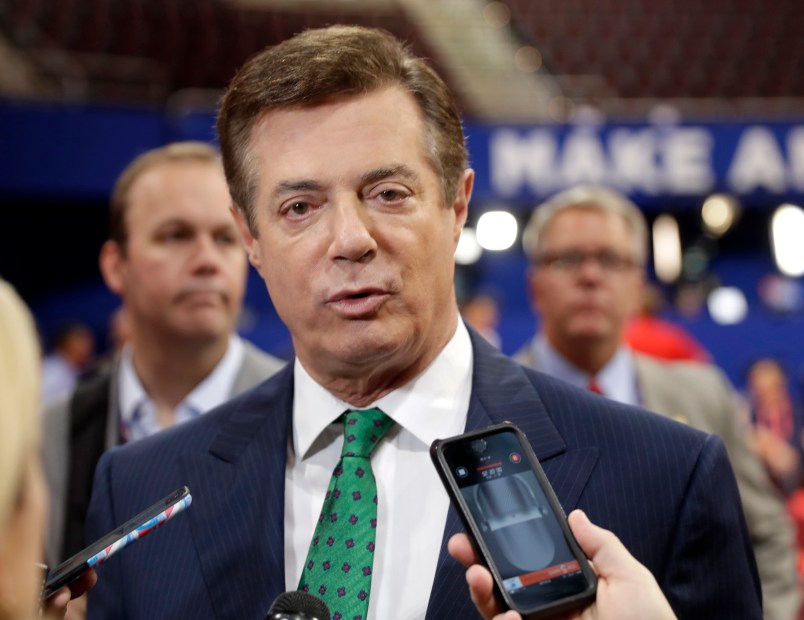I agree with Jon Chait. This revelation from The New York Times is a big deal. The Times reports that soon after the administration okayed the sale of Javelin missiles to Ukraine, Ukrainian officials ended their cooperation with Special Counsel Robert Mueller and essentially suspended a series of domestic investigations which touch on Paul Manafort.
The precise nature of Ukraine’s cooperation to date is murky. In January a Ukrainian prosecutor sent Mueller’s office a formal offer of cooperation to which he apparently didn’t receive a reply. This was a couple months before the kibosh got put on all Manafort related matters. Likely more important than formal cooperation is halting all their own investigations. What’s striking is that members of the Ukraine government are quite open about their motivations. A Ukrainian parliamentarian who is an ally of the President Poroshenko told the Times: “In every possible way, we will avoid irritating the top American officials. We shouldn’t spoil relations with the administration.” Another member of Parliament told the Times, “Everybody is afraid of this case.”
No one in the article says the administration demanded or suggested an explicit quid pro quo. But I’m not sure one was necessary. The Ukraine government could see as easily as anyone else can that anyone seen to be assisting Robert Mueller becomes President Trump’s enemy. And they are in desperate need of his being a friend. Weapons sales are critical. But they need the U.S. to at least keep some counter-pressure on Russia against the proxy war it is fighting in the eastern part of the country.
We are usually in the habit – for good reason – of not assuming things we don’t know (an explicit quid pro quo). That is especially the case when the facts on offer don’t require it. As I said, if you were the Ukraine government, stuck with a deep dependence on President Trump, would you be cooperating with Mueller? This is yet another example where Trump’s consistent attacks on the rule of law in the U.S. yield tangible benefits on numerous fronts. At a minimum, these threats have communicated to the Ukraine government that they should not provide any assistance to Mueller’s probe if they want any support from the President of the United States. Chait’s point is that everything we’ve learned about Trump and his associates militates against a cautious assumption: much more likely that the President or those working on his behalf did tell Ukraine to shut down their Manafort probes. He always exceeds our good faith assumptions about the scope of his dishonesty and corruption.
Is this true about the Ukraine decision specifically? I have no idea. Likely? Probably so. If not, he told them all they needed to know on Twitter.






